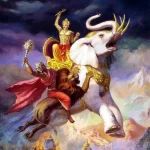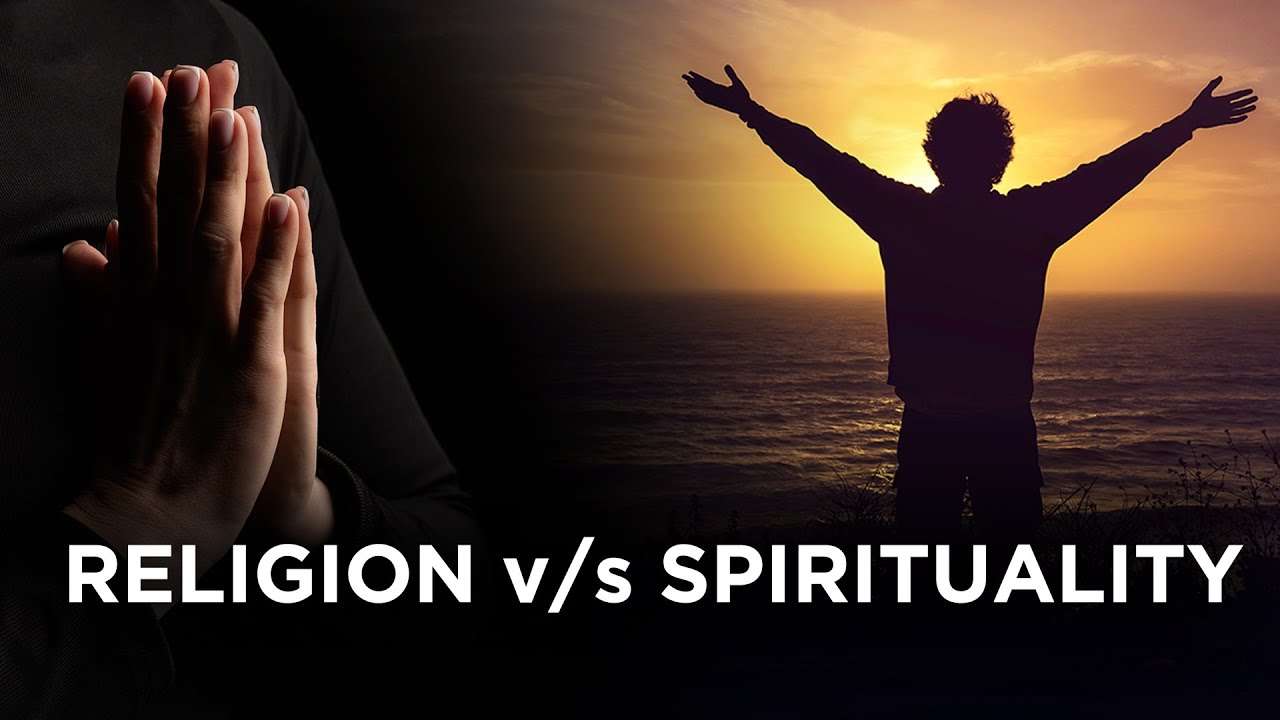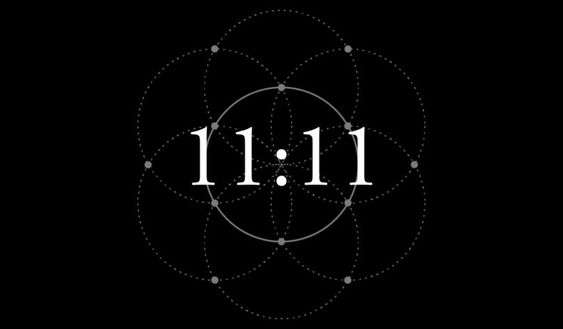Difference Between Spirituality and Religion
Hey there, little friend! Today, we’re going on an exciting journey to discover the “difference between spirituality and religion.” Imagine we’re on a magical adventure, and I’ll be your guide to help you understand everything step by step on Difference Between Spirituality and Religion
What’s This All About?
Alright, let’s start with a big question: What’s the Difference Between Spirituality and Religion ?
Think of them like two different paths that people follow to understand life and find answers to big questions. They’re kind of like two roads that take you to different places.
Spirituality: Your Heart’s Best Friend
Imagine your heart is a special friend who knows all about kindness, love, and feeling connected to everything around you. Spirituality is like having a cozy conversation with your heart. It’s about feeling a warm bond with the world and finding meaning in simple things like a sunny day or a friendly smile.
Religion: The Special Club
Now, think of religion as a special club. In this club, people follow certain rules and stories that were made a long time ago by important figures like Jesus, Buddha, and others. They read special books and go to special places to show love to a super powerful being. It’s like a club where everyone knows the secret handshake.
I hope now you got a little idea about the difference between Spirituality and Religion
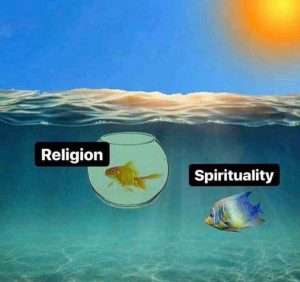
LETS KNOW MORE ABOUT THE DIFFERENCE BETWEEN SPIRITUALITY AND RELIGION
Doing Things Differently
Picture this: in the club of religion, there are lots of activities and special ways to do things. People wear special clothes, read from special books, and have their own games and rules.
On the other hand, spirituality is like having a secret treasure inside you. You don’t need to wear special clothes or go to specific places. Instead, you listen to your heart, maybe do some calming activities like meditation or yoga, and discover all the love and kindness inside you.
Rules and Change Between Spirituality and Religion
Okay, now let’s talk about rules. In the religion club, there are many rules that people follow, a bit like how you follow rules at school. These rules have been around for a long time, and they tell you what’s good and what’s not. It’s like reading a recipe and making sure you follow every step.
But in the world of spirituality, things are a bit different. It’s like having a drawing that you can keep adding to whenever you want. Instead of strict rules, you get to learn and grow as you discover new things. It’s like exploring and finding new paths that make sense to you.
Basic Difference Between Spirituality and Religion
Imagine being part of a group. In religion, sometimes it feels like only certain people can join the group, and others might feel left out. But guess what? In spirituality, everyone is invited to the party! It’s like a big playground where everyone can be friends, no matter what they believe in.
Feeling Scared or Feeling Loved (Spirituality and Religion)
Sometimes, religion talks about scary things like punishments. It’s a bit like feeling scared when you do something you’re not supposed to at home. This can make you worried and anxious.
But in spirituality, it’s all about love and kindness. It’s like wrapping yourself in a cozy blanket made of love. Instead of fear, it’s about showing love to others, making the world a better place, and spreading smiles everywhere.
Summing It All Up
So, my little adventurer, that’s the “difference between spirituality and religion.” Remember, it’s like having two different ways to explore and understand life. You can choose the path that feels right for you, just like picking your favorite flavor of ice cream. And no matter what, always remember that being kind and loving is the most magical thing you can do. I hope you now understood the basic differences between spirituality and religion.
Let’s delve into the whole “difference between spirituality and religion”
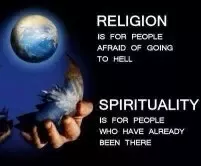
The distinction between spirituality and religion is an important one, even though they are related concepts. Here’s a breakdown of the key differences:
Religion:
- Structured Belief System: Religion usually involves a formal and organized belief system with specific doctrines, rituals, practices, and codes of conduct. These are often outlined in religious texts and teachings.
- Institutions: Religions are often associated with organized institutions such as churches, temples, mosques, synagogues, etc. These institutions serve as a central hub for religious activities, gatherings, and community.
- External Authority: Religious beliefs are often based on the teachings and interpretations of authoritative figures like prophets, holy texts, clergy, and religious leaders. There’s an emphasis on adhering to prescribed doctrines.
- Community: Religion provides a sense of belonging through the religious community. People of the same faith come together to worship, celebrate, and support each other.
- Purpose and Morality: Religions typically offer a clear framework for moral and ethical behavior based on their teachings. They provide answers to life’s fundamental questions and offer a sense of purpose.
Spirituality:
- Personal Connection: Spirituality is more about personal experiences and individual journeys. It’s characterized by a direct, personal connection with the divine, the universe, or a higher power, without strict adherence to specific doctrines.
- Inner Exploration: Spirituality often involves introspection, meditation, contemplation, and other practices that help individuals explore their inner selves and their connection to the world around them.
- Fluidity: Spiritual beliefs tend to be more fluid and adaptable. People may draw inspiration from various sources and philosophies, creating a unique blend of beliefs that resonate with them.
- Less Formal Structure: Spirituality doesn’t necessarily require adherence to formal religious institutions. It can be practiced individually or within small, informal groups.
- Personal Growth and Well-being: Spirituality is often pursued for personal growth, self-awareness, and well-being. It’s about finding meaning and purpose in life on a deeply personal level.
In essence, religion often involves a set of prescribed beliefs, rituals, and practices that are shared within a community, while spirituality is a more personal and flexible exploration of one’s connection to the greater cosmos. However, it’s important to note that these distinctions aren’t always black and white. Many people find themselves on a spectrum between strict religious adherence and a more loosely defined spiritual path. Additionally, some religious traditions incorporate elements of spirituality, and many spiritual individuals find inspiration from various religious teachings. It’s a complex and nuanced area with room for a wide range of beliefs and practices.
Origins and Approach: (Spirituality and Religion)
- Religion: Religions often trace their origins to specific historical or archetypal figures whose lives, teachings, and beliefs are preserved through oral traditions and written scriptures. These figures form the core of religious practices, and followers look to them for guidance, moral codes, and salvation. Religions often emphasize community and adherence to established rituals.
- Spirituality: Spirituality is more concerned with the practical application of teachings rather than a strict adherence to the lives of historical figures. Spiritual seekers focus on the inner journey, seeking personal growth, self-awareness, and connection with something greater. They may draw inspiration from various sources, traditions, and philosophies, often blending them into a unique path.
Blurring Lines:
- It’s important to note that these distinctions aren’t rigid. Many religions incorporate elements of spirituality, and many spiritual individuals find value in certain religious practices. Moreover, individuals often find their own unique balance between the two.
- Some people may identify as both spiritual and religious, while others may reject religious institutions but still engage in deeply spiritual practices.
- The definitions of religious and spiritual are also influenced by cultural, historical, and individual factors. For instance, what constitutes “spiritual” can vary widely between different belief systems.
Commonalities:
- Search for Truth: Both religious and spiritual paths are driven by a quest for deeper understanding, meaning, and truth about existence, purpose, and the universe.
- Inner Growth: Both paths often emphasize personal growth, transformation, and self-awareness, although the methods and approaches may differ.
- Connection: Both involve a sense of connection—to the divine, to others, to nature, or to the universe—albeit through different lenses.
In essence, while there are certain distinguishing characteristics between religion and spirituality, they are not mutually exclusive. People navigate these concepts in diverse ways, often drawing from various sources and experiences to create their own unique path. It’s a dynamic and evolving journey, and individuals may find themselves at different points on the spectrum throughout their lives.
Objective vs. Subjective Experience: (Spirituality and Religion)
- Religion: Religious practices often involve external elements like physical places of worship, sacred texts, rituals, and observances. These external aspects serve as points of focus and connection with the divine or the sacred. The emphasis is often on following prescribed practices and doctrines.
- Spirituality: Spirituality emphasizes an inward journey where the focus shifts from external rituals to inner exploration. This subjective experience involves connecting with one’s own soul, higher self, or divinity within. It’s about personal transformation, understanding, and growth.
Organized vs. Formless:
- Religion: Religions tend to have organized structures, often governed by rules, laws, and doctrines. These structures provide a sense of community, identity, and guidance. Organized religions offer a framework for moral and ethical behavior and often aim to provide a stable foundation in uncertain times.
- Spirituality: Spirituality, in contrast, doesn’t adhere to rigid external structures. It’s often seen as a personal, intuitive journey of self-discovery. Spiritual seekers may not follow predefined rules but instead listen to their inner calling and intuition. This can lead to a sense of independence and individuality on the path.
Blurring Boundaries and Diversity:
- It’s important to note that these distinctions are not always absolute. There are religious traditions that emphasize inner spiritual experiences, and there are spiritual paths that incorporate certain forms of external practices.
- The diversity within both religion and spirituality is vast. Some religious individuals might experience profound inner insights, and some spiritual seekers might find value in certain organized practices. Likewise, some religious traditions might prioritize personal interpretation, while some spiritual paths might adopt certain external rituals.
Personal Journeys:
In the end, whether one is drawn to religion, spirituality, or a combination of both depends on individual inclinations, needs, and experiences. Some may find comfort and guidance in the structure of religion, while others may resonate with the more personal and flexible approach of spirituality. Both paths offer unique ways of seeking meaning, purpose, and connection, and individuals often navigate between these paths throughout their lives. It’s the personal journey and the quest for truth that define the exploration of these concepts.
Traditional vs. Evolutionary Approach:
- Religion: Traditional religions often emphasize preserving historical teachings and practices to maintain continuity and accuracy. The adherence to original interpretations and doctrines is intended to ensure the integrity of the religion’s core beliefs.
- Spirituality: Spirituality tends to have a more open and flexible approach to teachings. It acknowledges that the understanding of spiritual truths can evolve over time, reflecting changes in individual and collective consciousness. This adaptive mentality recognizes that growth and transformation are inherent to the spiritual journey.
Exclusive vs. Inclusive:
- Religion: Some religious beliefs, due to their rigid interpretations, can lead to an exclusive worldview. This might result in the marginalization of those who don’t share the same beliefs, potentially causing divisions and conflicts.
- Spirituality: Spirituality often embraces an inclusive perspective. It acknowledges the interconnectedness of all beings and the idea that different paths can lead to the same truth. This inclusive mindset promotes unity and a sense of belonging for everyone.
Belief vs. Spiritual Experience:
- Religion: Religion is often centered on faith and belief in the teachings, scriptures, and dogmas of the tradition. Believers are encouraged to accept these teachings unquestioningly as a pathway to salvation.
- Spirituality: While spirituality acknowledges the role of faith, it also places a strong emphasis on personal experience. Spiritual practices encourage direct contact with expanded states of consciousness, allowing individuals to validate the teachings through their own experiences. This experiential aspect can lead to a deeper, more profound understanding.
Personal Pathways: (Difference Between Spirituality and Religion)
In considering these contrasts, it’s crucial to recognize that individuals often find themselves on a spectrum between these different aspects. Some religious individuals might engage in deeply transformative spiritual practices, and some spiritual seekers might draw inspiration from certain aspects of religious traditions. Furthermore, beliefs and practices can evolve over time, and one’s perspective can shift as they progress on their journey of self-discovery and understanding.
Ultimately, whether one gravitates toward religion, spirituality, or a blend of both depends on individual preferences, experiences, and needs. It’s this personal exploration that leads to a richer understanding of one’s relationship with the divine, the universe, and their own self.
In our eternal search for answers and meaning, we often find ourselves at the crossroads of religion and spirituality. These paths, though distinct, share common ground as they offer ways to explore life’s biggest questions.
Religion provides structure, with rituals, texts, and communities that guide believers. It’s a timeless compass that has offered solace through the ages.
On the other hand, spirituality is a personal journey. It’s about diving within, seeking connection with something larger. It adapts, evolves, and focuses on experience rather than doctrine.
Religion might sometimes feel exclusive, while spirituality embraces inclusivity, seeing unity in diversity.
Religion often hinges on faith in teachings, while spirituality invites us to experience truths firsthand.
As we navigate these landscapes, remember that both roads lead to the same destination: understanding, growth, and connection with something greater than ourselves. It’s your journey, and the path you choose is a reflection of your unique quest for meaning.
I Hope You Liked our article on Difference Between Spirituality and Religion.
Do Follow Us On Twitter – https://twitter.com/Uniqverses708
We Have a Wide Range of Unique information For You On Uniqverses.com
Please like, comment & Share if you want us to keep bringing these amazing and unique information for you
#ReligionAndSpirituality #PathwaysOfUnderstanding #JourneyWithin #SeekingMeaning #UnityInDiversity #PersonalExploration #FaithAndExperience #ConnectingWithTheSacred #InwardJourney #SharedQuest #DiscoveringTruths




